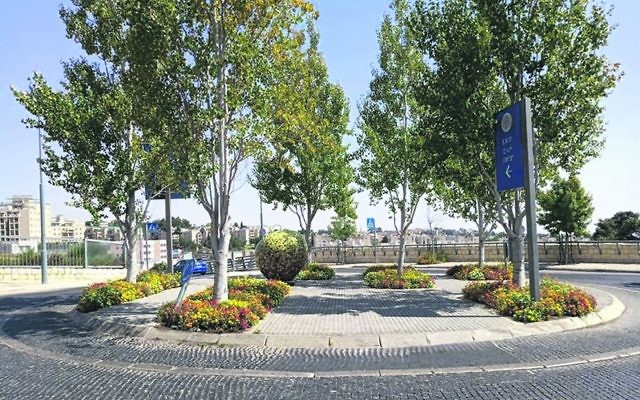US Jerusalem embassy set to open on Monday
A high-level American delegation is heading to Israel, for the opening of the US embassy in Jerusalem on Monday, May 14.
A HIGH-LEVEL American delegation is heading to Israel, for the opening of the US embassy in Jerusalem on Monday, May 14.
Israeli leaders are excited and Palestinian leaders are angry as the US administration prepares to follow through on one of Donald Trump’s most controversial campaign promises.
The US has timed the opening for one day before Israel’s 70th birthday in the civil calendar.
This week Jerusalem’s mayor Nir Barkat placed a road sign pointing to the embassy, which has been in Tel Aviv until now in line with the refusal of most of the international community to recognise Jerusalem as capital.
“This is not a dream – it’s reality,” he remarked, adding, “Jerusalem is the eternal capital of the Jewish people – and the world is beginning to recognise this fact.”
Barkat also announced this week that he is naming the square next to the embassy United States Square in honour of President Donald Trump.
Barkat said that he wanted to show “love and respect” for Trump and that by recognising Jerusalem as capital he had decided “to stand on the side of the truth, and to do the right thing”.
Trump is not attending the opening, and has instead dispatched his Treasury Secretary Steven Mnuchin, his senior adviser and son-in-law Jared Kushner, his daughter Ivanka Trump, and his Middle East envoy Jason Greenblatt.
Palestinian officials have declared Monday a “day of rage”, and Israeli security forces are on high alert.
Ahmad Majdalani, a Palestinian politician who is close to the leadership, announced on Tuesday that Ramallah will respond to the embassy opening by turning up the heat on Israel.
He said that there will be acts of “popular resistance” and attempts to open various proceedings against Israel at the International Criminal Court, as well as moves to increase recognition for Palestinian statehood, which Ramallah declared unilaterally.
Palestinian chief negotiator Saeb Erekat called for a boycott of the opening ceremony and said that anyone who attends sends “a message that they encourage flagrant violations of international law and the inalienable rights of the Palestinian people”.
As Israeli–Palestinian tensions surge ahead of the embassy opening, they are also on the rise due to events on the Israel–Gaza border. There, protesters are in a frenzy, as they prepare to bring their month-and-a-half-long March of Return to a climax on Tuesday, which Palestinians mark as “Nakba Day.”
Crowds for the final part are expected to surpass the 10,000 seen last Friday, and their antics are expected to be even more extreme. Last Friday’s protest involved attempts to breach the Gaza–Israel border, the throwing of rocks and molotov cocktails at Israeli soldiers, and the flying of kites with special material that was supposed to start fires in Israel.
Palestinian officials claimed that more than 1000 people were injured by Israeli fire and crowd control, and the death toll of Palestinians during the protests, since they began, is estimated at 48. Israel believes that around 70 per cent of those killed had ties to terror groups.
Jerusalem claims that peaceful protesters are a cover for violent activists who want to harm Israel, its soldiers and civilians, while Hamas claims that the march is peaceful.
Frictions over Gaza have risen further since Friday. On Saturday six Hamas gunmen were killed in an explosion.
Hamas has blamed Israel, though Israel hasn’t commented. Then, on Sunday, two Gazans tried to cross to Israel, and were shot dead.
While violence from Gaza is expected to spiral further next week, there is speculation that a calming between Israel and Hamas could be in the offing.
In an unconfirmed report this week, Haaretz said that Hamas has been sending messages to
Israel suggesting a long-term ceasefire.
NATHAN JEFFAY


comments